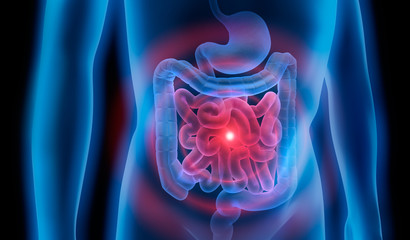Digestive enzymes play a vital role in your body as they help your gut to break down food for vitamin distribution throughout your body. Whenever we eat, our digestive system gathers vitamins, protein, and carbs from the food. Once collected, these nutrients are then distributed into the bloodstream and then converted into energy that is essential for growth and repair.

With the help of digestive enzymes, this can be possible. There are three types of digestive enzymes base on a study from the experts at Harvard Medical School, and these are:
- Protease: Extracts protein from food and turns them into amino acids and small peptides, which is essential for build and repair.
- Amylase: Breaks down carbs and turns it into simple sugars for energy distribution.
- Lipase: Breaks down fats and turns it into fatty acids.
There are also other types of enzymes as well, such as lactase, maltase, and sucrase, which are responsible for sugar breakdown.
- Lactase: breaks down sugar from dairy.
- Maltase: breaks down maltose sugar from malted sugar.
- Sucrase: breaks down sucrose from sugar canes and beet syrup.
Your body naturally produces enzymes, but there’s nothing wrong with helping it by consuming foods that are high in digestive enzymes. With that said, here are thirteen foods to help you with that.
- Kefir – This thick and creamy fermented milk is a good source of good-gut health benefits. It’s rich in probiotics and of course, digestive enzymes. Digestive enzymes in Kefir such as lipase, lactase, and protease forms when bacteria in the milk develops.
- Honey – This superfood is rich in amylase, protease, diastase, and invertase, which are digestive enzymes. Diastase is responsible for breaking starches into maltose. Invertase, on the other hand, breaks sucrose and converts it into glucose and fructose. Make sure to eat it raw as heated honey will lose its enzymes.
- Ginger – Popularly known for its anti-nausea effects, ginger also contains a digestive enzyme called zingibain. It’s a protease type of enzyme that breaks down the protein from foods you digest. Incorporating ginger in your food or beverages can help promote muscle contractions that line the digestive organs.
- Miso – It’s more than just a soup. Miso is rich in digestive enzymes as well. And because of its fermented nature, Miso is also a good source of probiotics. The dynamic duo of probiotics and digestive enzymes makes miso your go-to soup that is healthy and delicious at the same time.
- Pineapple – Ever found recipes on the web that pairs pineapple and pork/chicken together? Sounds weird for some, but this is a very healthy combination. Pineapple is rich in bromelain, a digestive protease enzyme that goes well when being eaten with protein-rich foods.
- Kimchi – This one is also another fermented food just like miso. During the fermentation process, it creates a lot of good bacteria that produce digestive enzymes that are essential for your body’s GI tract. Kimchi is high in protease, lipase, and amylase. As a bonus, it can also lower bad (LDL) cholesterol as well. To get the best out of Kimchi’s nutrients, eat it raw.
- Mango – Mango is rich in amylase enzyme that helps break down carbs into glucose and maltose. The riper the mango is, the more enzyme it has. This is why it gets sweeter the longer as the enzymes break down mango’s starches and turn it into sugar.
- Papaya – Papaya is rich in protease, a digestive enzyme that breaks down protein and turns it into amino acids and peptides. The best way to eat papaya is by eating it raw to get the benefits of the enzyme.
- Sauerkraut – This fermented cabbage food is high in digestive enzymes. Combining that with its probiotic effect, it keeps the gut and immune system strong and healthy. Opt for fresh sauerkraut that is not pasteurized yet as those that are already pasteurized has already lost its good bacteria.
- Avocado – This wonder fruit is rich in lipase, an enzyme that helps break down fat and turn it into molecules for easier digestion. Naturally, your body produces lipase, and you can help it build more by eating avocados.
- Apricot – Apricot contains a digestive enzyme called invertase that helps break down the fruit’s sugar and converts it into energy for your body cells to use. Apricot also helps on aiding gastrointestinal issues such as constipation and indigestion.
- Banana – A banana contains two digestive enzymes: amylases and glucosidases. Both of this help break down carbs and turn it into digestible sugars for your body to absorb. These enzymes are more prominent in green bananas and turn sweeter as they age and become yellow. If you’re a person that eats a banana every day, then good for you! Your health will thank you later.
- Kiwi – Kiwi not only eases your digestion system, but they also contain a digestive enzyme too called actinidain that helps your body to digest protein. This enzyme also aids your GI tract so you can digest meat more quickly. This is the reason why actinidain is used by some meat companies as a meat tenderizer.





